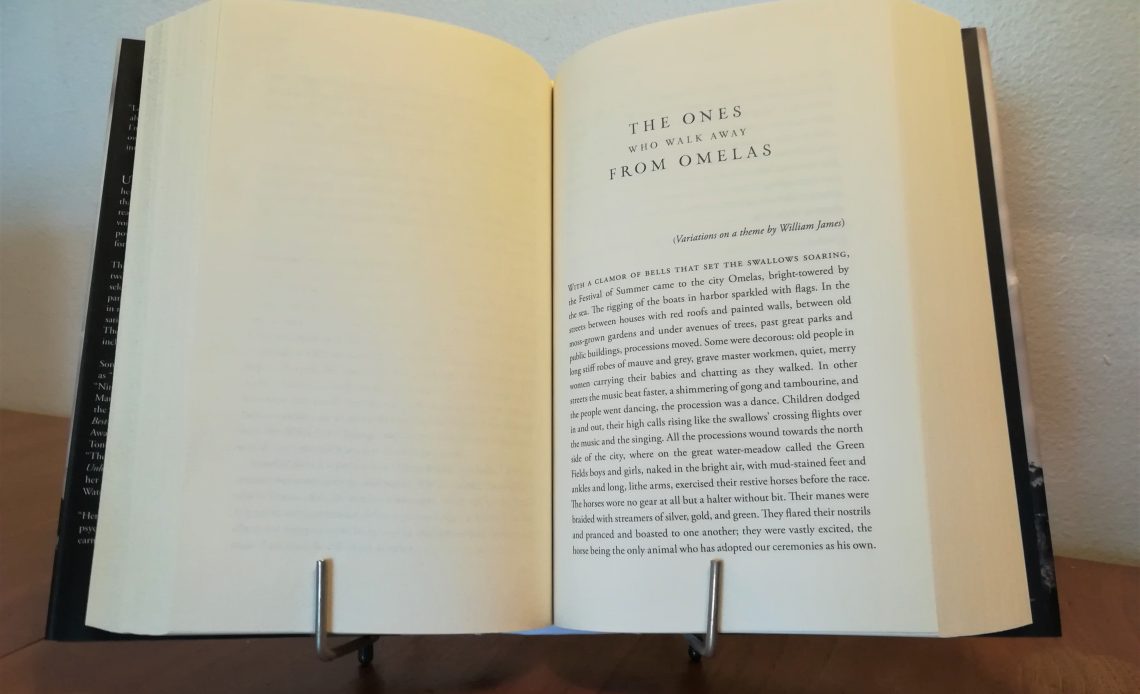

there’s a finite amount of joy in the world, and by making one person wretched and miserable they ‘use up’ all of the misery and leave nothing but happiness for everyone else).īut perhaps this is precisely the point: we only have the (uncertain) narrator’s word for it that the beauty and joy of Omelas would vanish if the child’s suffering was ended. And one of the subtle details of ‘The Ones Who Walk Away from Omelas’ is that the narrator seems to accept without question the very premise on which the city has been made prosperous: namely, that the child must be kept miserable and in squalid conditions, in order to guarantee the opposite for everyone else, unless we accept the idea that happiness exists as some kind of cosmic balance (i.e. Le Guin was one of the foremost literary stylists of her generation, and certainly one of the finest stylists working in science fiction and speculative fiction. For instance, the narrator admits that they don’t know where those people are going, the ‘ones who walk away from Omelas’.īut Ursula K. Indeed, the narrator is what we might call an ‘uncertain narrator’ (as distinct from an unreliable narrator), because they readily confess to the limits of their knowledge about Omelas and its practices. Of course, there is no rhyme or reason why the city’s happiness and prosperity should be dependent on the misery of one child. MASTERWORKS), which contains some of the finest SF short stories of the late twentieth century.

The story, by the way, is available in Le Guin’s bumper collection, The Wind’s Twelve Quarters and The Compass Rose (S.F. How should we respond to this troubling and powerful story? Before we provide an analysis of ‘The Ones Who Walk Away from Omelas’, it might be worth recapping the story’s plot. Le Guin’s best-known stories, and it has the force of a modern myth: indeed, Le Guin herself, in her note to the story, used the term ‘psychomyth’ to describe it. ‘The Ones Who Walk Away from Omelas’ is one of Ursula K. But the idea behind the story came from both Fyodor Dostoevsky and from the nineteenth-century psychologist, William James. Le Guin’s 1973 short story ‘The Ones Who Walk Away from Omelas’, came from her reading a road sign for Salem, Oregon, (‘Salem, O.’) in her car’s rear-view mirror. Omelas, the distinctive-sounding but entirely fictional city in Ursula K. Writers can get ideas from the strangest of places.


 0 kommentar(er)
0 kommentar(er)
